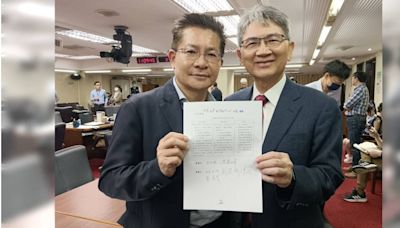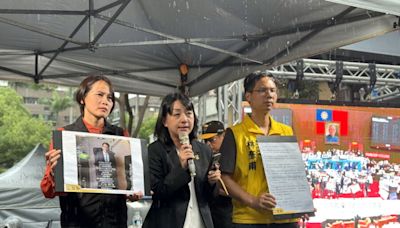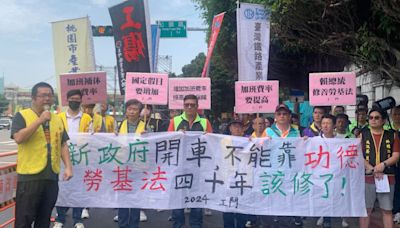搜尋結果
Thirty-three amendments to the Constitution of the United States have been proposed by the United States Congress and sent to the states for ratification since the Constitution was put into operation on March 4, 1789. Twenty-seven of those, having been ratified by the requisite number of states, are part of the Constitution.
The United States Bill of Rights comprises the first ten amendments to the United States Constitution.Proposed following the often bitter 1787–88 debate over the ratification of the Constitution and written to address the objections raised by Anti-Federalists, the Bill of Rights amendments add to the Constitution specific guarantees of personal freedoms and rights, clear limitations on the ...
- September 25, 1789
- National Archives
- December 15, 1791
Reading of the United States Constitution of 1787. The Constitution of the United States is the supreme law of the United States. [3] It superseded the Articles of Confederation, the nation's first constitution, on March 4, 1789. Originally including seven articles, the Constitution delineates the national frame and constrains the powers of the ...
A map of the United States showing its 50 states, federal district and five inhabited territories. Alaska, Hawaii, and the territories are shown at different scales, and the Aleutian Islands and the uninhabited northwestern Hawaiian Islands are omitted from this map. This article is part of a series on.
- Background Before Adoption
- Grand Jury
- Self-Incrimination
- Due Process
- Takings Clause
- Further Reading
- External Links
On June 8, 1789, Congressman James Madison introduced several proposed constitutional amendments during a speech to the House of Representatives.His draft language that later became the Fifth Amendment was as follows: This draft was edited by Congress; all the material before the first ellipsis was placed at the end, and some of the wording was mod...
The Grand Jury Clause is limiting governmental powers focusing on criminal procedures, because, as stated by the U.S. Supreme Court in United States v. Cotton (2002), "the Fifth Amendment grand jury right serves a vital function in providing for a body of citizens that acts as a check on prosecutorial power. No doubt that is true. See, e. g., 3 Sto...
The Fifth Amendment protects individuals from being forced to incriminate themselves. Incriminating oneself is defined as exposing oneself (or another person) to "an accusation or charge of crime", or as involving oneself (or another person) "in a criminal prosecution or the danger thereof". The privilege against compelled self-incrimination is def...
The Fifth and Fourteenth Amendments to the United States Constitution each contain a due process clause. Due process deals with the administration of justice and thus the due process clause acts as a safeguard from arbitrary denial of life, liberty, or property by the government outside the sanction of law. The Supreme Court has interpreted the due...
Eminent domain
The "Takings Clause", the last clause of the Fifth Amendment, limits the power of eminent domainby requiring "just compensation" be paid if private property is taken for public use. It was the only clause in the Bill of Rights drafted solely by James Madison and not previously recommended to him by other constitutional delegates or a state ratifying convention. The Takings Clause originally applied only to the federal government, but the U.S. Supreme Court ruled in the 1897 case Chicago, B. &...
Just compensation
The last two words of the amendment promise "just compensation" for takings by the government. In United States v. 50 Acres of Land (1984), the Supreme Court wrote that "The Court has repeatedly held that just compensation normally is to be measured by "the market value of the property at the time of the taking contemporaneously paid in money." Olson v. United States, 292 U.S. 246 (1934) ... Deviation from this measure of just compensation has been required only "when market value has been to...
Civil asset forfeiture
Civil asset forfeiture or occasionally civil seizure, is a controversial legal process in which law enforcement officers take assets from persons suspected of involvement with crime or illegal activity without necessarily charging the owners with wrongdoing. While civil procedure, as opposed to criminal procedure, generally involves a dispute between two private citizens, civil forfeiture involves a dispute between law enforcement and propertysuch as a pile of cash or a house or a boat, such...
Amar, Akhil Reed; Lettow, Renée B. (1995). "Fifth Amendment First Principles: The Self-Incrimination Clause". Michigan Law Review. 93 (5). The Michigan Law Review Association: 857–928. doi:10.2307/...Bugh, Gary (2023). Incorporation of the Bill of Rights: An Accounting of the Supreme Court’s Extension of Federal Civil Liberties to the States. New York: Peter Lang.Davies, Thomas Y. (2003). "Farther and Farther From the Original Fifth Amendment" (PDF). Tennessee Law Review (70): 987–1045. Archived from the original (PDF) on 2010-06-12. Retrieved 2010-04-06.The First Amendment ( Amendment I) to the United States Constitution prevents the government from making laws respecting an establishment of religion; prohibiting the free exercise of religion; or abridging the freedom of speech, the freedom of the press, the freedom of assembly, or the right to petition the government for redress of grievances.
Category • Philosophy portal. Immanuel Kant [a] (born Emanuel Kant 22 April 1724 – 12 February 1804) was a German philosopher and one of the central Enlightenment thinkers. Born in Königsberg, Kant's comprehensive and systematic works in epistemology, metaphysics, ethics, and aesthetics have made him one of the most influential and ...








